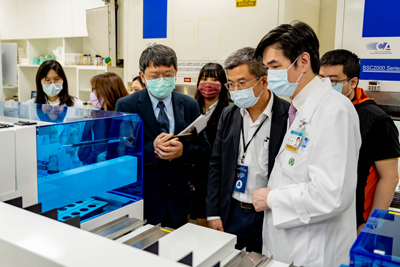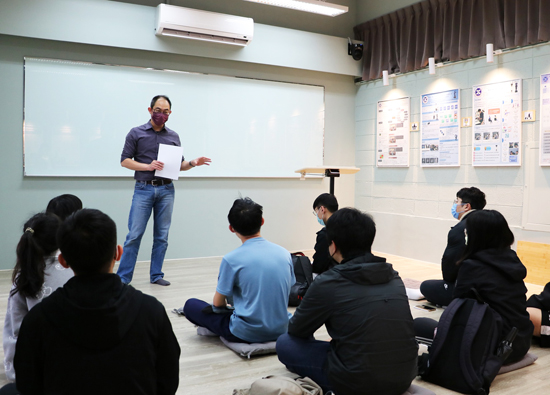06.2023 Group Briefing
Far Eastern Memorial Hospital enables intelligent clinical pathology laboratory
Far Eastern Memorial Hospital / Luo Yunyu


 Far Eastern Memorial Hospital is actively promoting its smart healthcare and laboratory upgrade plan. Starting from 2022, it has introduced the most complete intelligent microbial assembly line system in Asia, integrating human-machine interfaces, and automatically completing processes from inoculation, cultivation, image interpretation to pre processing of localized bacterial mass spectrometry. This greatly optimizes the testing process and accuracy, improves laboratory biosafety, and shortens report production time, Assist physicians in early judgment and medication to reduce the threat of pathogenic bacteria to patients.
Far Eastern Memorial Hospital is actively promoting its smart healthcare and laboratory upgrade plan. Starting from 2022, it has introduced the most complete intelligent microbial assembly line system in Asia, integrating human-machine interfaces, and automatically completing processes from inoculation, cultivation, image interpretation to pre processing of localized bacterial mass spectrometry. This greatly optimizes the testing process and accuracy, improves laboratory biosafety, and shortens report production time, Assist physicians in early judgment and medication to reduce the threat of pathogenic bacteria to patients. Introducing an AI assisted interpretation system for automated microbiological testing and image management
Introducing an AI assisted interpretation system for automated microbiological testing and image managementIn recent years, Far Eastern Memorial Hospital has continuously promoted intelligent and innovative applications, gradually introducing outpatient blood sampling automatic reporting and preparation system (2016), fully automated blood group analysis system (2018), fully automated biochemical serum analysis track system (2020), automatic blood smear image interpretation system (2021), as well as microbial testing automation and image management AI assisted interpretation system (2022), After 6 to 7 years of establishment, upgrading, and rectification, the Clinical Pathology Department has finally achieved the vision of "intelligent medical laboratories".
Zhu Fangye, who served as the driving force for the transformation and process optimization of the clinical pathology department, stated that moving towards smart healthcare is not only a global trend, but also a milestone in the evolution of medical services. With the assistance of digitization, intelligence, and the "Automated Microbial Testing and Image Management AI Assisted Interpretation System", it is believed that it can help medical examination teams achieve greater efficiency and improve medical quality.
Optimize the inspection process and enhance the demand for accurate interpretation
Zhu Fangye Section Chief explained that using a mass spectrometer for strain identification can shorten the reporting time. However, the pre-treatment operation requires a large amount of use of micro quantitative straws, and repetitive movements cause severe muscle load on the hands of medical examiners. Introducing an automated mass spectrometer preprocessing system, through automation and simplification of steps, can reduce repetitive actions. In addition, standardized operations can also improve the efficiency and quality of the mass spectrometer, resulting in a 27.9% increase in microbial laboratory output.
Zhu Fangye Section Chief further pointed out that the cultivation results of bacteria can also enable physicians to quickly understand the patient's infection situation through remote means, directly communicate with the laboratory, and achieve a win-win situation between the laboratory and the patient; The retained images can also be used for subsequent clinical research and teaching, in order to cultivate talents and improve medical standards.
Vice President Lin Ziyu also said that in addition to improving the quality of medical services, AI intelligent medical inspection environment has also become the key to cultivating and retaining talents within the organization. In the friendly working environment it has created, the medical examiner team will gather centripetal force, continue to improve, and create glory together. Deepening the cultivation of smart healthcare should not only start from the public's health needs, but also start from cultivating medical examination talents and implementing a "patient centered medical culture".
#




















